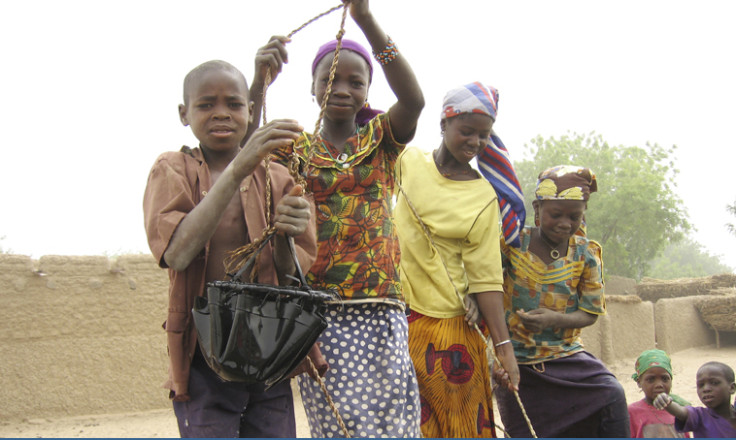Child Marriage in 2013: Third of Women in Developing World Married Before 18

Child marriage is a violation of human rights. Despite international conventions aimed at tackling the problem, many countries have not implemented laws to protect children, as evidenced by the latest shocking statistics.
About a third of women (400 million) aged 20-24 years old in the developing world were married as children, according to a 2013 report by Unicef.
Child marriage is most common in West and Central Africa and in South Asia, where two out of five girls are brides.
Child marriage frequently happens in rural areas, where tradition and lack of education dictate protocol.
According to United Nations Population Funds ( UNFPA) Niger has the highest percentage of child marriage in the world (75%). In Niger one in three girls is married before the age of 15, and 75% of women aged 20 to 24 are married before age 18.
Niger is followed by Chad and Central African Republic (68%), Guinea (63%), Mozambique (56%), Mali (55%), Burkina Faso and South Sudan (52%), Malawi (50%), Ethiopia (49%), Sierra Leone and Burkina Faso (48%), Eritrea (47%), Uganda (46%), Somalia (45%), Zambia (42%), Congo, Madagascar and Senegal (39%).
"In West Africa, which has the continent's worst rates of child marriage: 49% of girls under 19 are living in marital unions," according to global partnership Worlds Not Brides.
UNFPA reported that 47% of girls in India are married before the legal minimum age.
The northern State of Bihar has the highest incidence of child marriage at (68%), next Bangladesh (66%), followed by Jharkand (55.7%), Rajasthan (57.6%), Uttar Pradesh (54.9%), West Bengal (54.8%) and Madhya Pradesh (53.8%).
"Although India's law against child marriage is applicable to all regardless of religion, personal laws, including the Muslim Personal Law, are sometimes used to assert religious identities," Equality Now reported.
In some parts of India child marriage is used to cover up trafficking of young girls.
"Sheikhs from the Gulf travel to parts of India in search of girls. Younger girls and those considered prettier can be sold for up to 1 lakh rupees [£1070]," said Equality Now.
"Traditionally authorities had been reluctant to take action, however recently they have begun to stop such marriages when they have reliable advance information. As a consequence, girls are being married in secret and then taken to Mumbai in the middle of the night when no-one will see them," it said.
Article 16 of the Convention on the Elimination of All Forms of Discrimination against Women (CEDAW), stated: "The betrothal and the marriage of a child shall have no legal effect, and all necessary action, including legislation, shall be taken to specify a minimum age for marriage".
This statute was ratified by 187 countries ( not including the US, Iran, Palau, Somalia, Sudan and Tonga).
Even when a minimum age is guaranteed by law, this is not often implemented or enforced.
In 50 countries, the minimum legal age of marriage is lower for females than for men, UN Women reported.
Gender inequality, poverty, lack of education and violence against women and girls are major factors in child marriage.
This procedure also entails discriminations and abuses that begin at a girl's birth and continue throughout her life, such as female genital mutilation, domestic violence and reduced education opportunities.
"Child marriage directly affects approximately 14 million girls a year [...] When a child bride gives birth, the vicious cycle of poverty, poor health, curtailed education, violence, instability, disregard for rule of law and legal and other discrimination often continues into the next generation, especially for any daughters she may have," Jacqui Hunt, London director of Equality Now said.
© Copyright IBTimes 2025. All rights reserved.






















